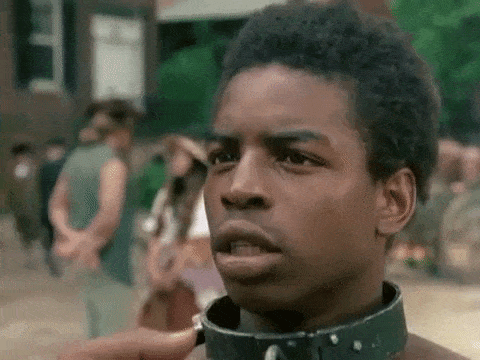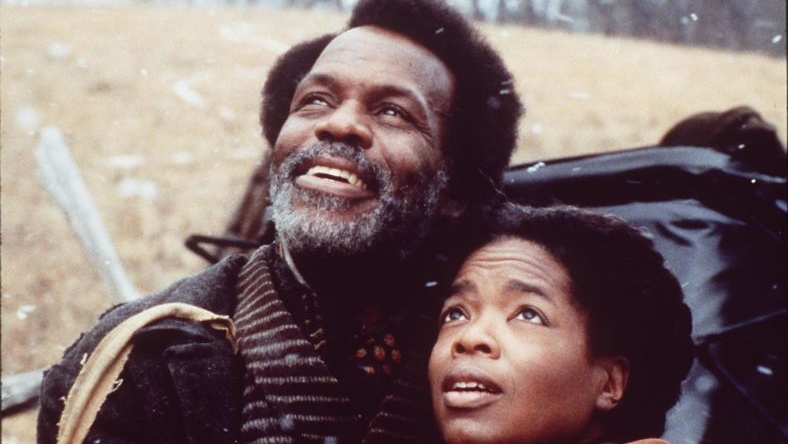There’s been a growing debate within Black spaces surrounding the modern-day increase of movies depicting American chattel slavery. Some, like Kara Brown for Jezebel, said that she was tired of seeing Black torture on screen. Further, she wondered why slave films were overwhelmingly acknowledged by white audiences as the pinnacle of Black art.
“When movies about slavery or, more broadly, other types of violence against black people are the only types of films regularly deemed 'important' and 'good' by white people, you wonder if white audiences are only capable of lauding a story where black people are subservient,” Brown wrote.
Others feel that even if the subject is a painful watch, there still aren’t enough films depicting one of American history's darkest periods. No matter what side of the line you fall on, slave movies are nothing new — though they’re not as abundant as you’d imagine. But here are five of the most well-known slavery films:
1. Roots

Perhaps the Godfather of slave cinema, when Roots aired in 1977 on ABC across eight consecutive nights, it changed the landscape of American cinema. The Roots television miniseries was based on Alex Haley’s novel Roots: The Saga of an American Family. The book was a history of Haley’s family tree that chronicled the capture of teenage Gambian Kunta Kinte all the way up until Haley’s birth. The series starred a wealth of legendary and new Black actors (including our favorite, LeVar Burton) and has been hailed as “the single most important piece of scripted television in broadcast history.”
2. Amistad
Amistad is based on a true story about a slave rebellion that took place on the Spanish ship La Amistad. In 1839, stolen persons from West Africa seized the ship and forced the remaining crew to return East. However, the kidnappers turned North with hopes they would be intercepted in America. They were, and after a legal battle that sought to re-enslave those who had been taken, the U.S. Supreme Court, in United States v. Schooner Amistad (1841), ruled the Africans should be set free. The movie is famous for Djimon Hounsou’s line, “give us free.”
3. 12 Years A Slave
This 2013 film was an adaptation of the 1853 slave memoir Twelve Years a Slave by Solomon Northup, a New York state-born free Black man who was kidnapped in Washington, D.C. in 1841 and sold into slavery. A violinist, among many things, Northup was told he would play for a traveling circus only to be drugged and sold to slavers. The film gave breakout roles to Chiwetel Ejiofor and Lupita Nyong'o.
4. Birth of a Nation
Birth of a Nation was a 2016 film retelling the story of Nat Turner's Rebellion. Turner was an enslaved Black preacher who led a four-day slave revolt in 1831, the most deadly and most prolonged of its kind, as Blavity previously reported. The film set a Sundance record when it was bought for $17.5 million, but the reception was marred in controversy when its producer, writer, director and star Nate Parker's history of alleged sexual misconduct in college resurfaced.
5. Beloved
Beloved is a 1998 film starring Danny Glover and Oprah Winfrey based on Toni Morrison's 1987 novel of the same name. In it, Sethe, played by Winfrey, is tormented by a reincarnation of the daughter she killed rather than see enslaved. The film is dark, heavy and imaginative. Most importantly, it depicts the brutality and potential desperation of Black women and mothers during enslavement.
